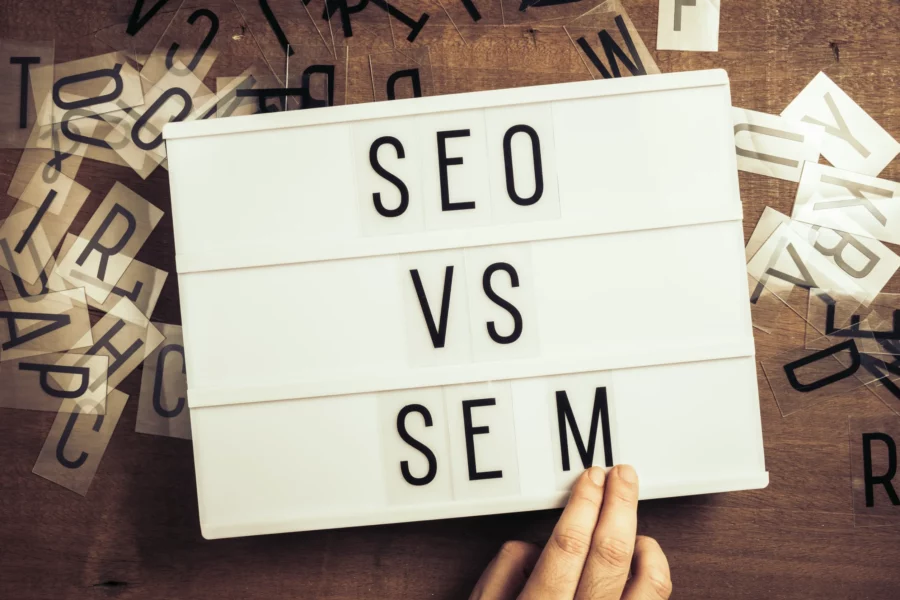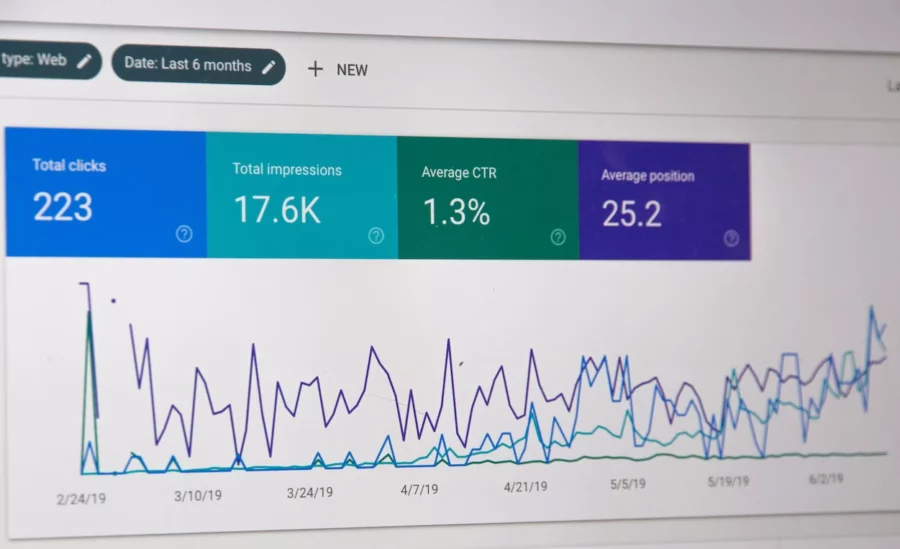SEO vs SEM: What is the Difference?


By Michael Culp
November 25, 2022
Hey, I’m Michael Culp, and today, I’m going to show you the main differences between SEO Vs SEM.
Google is the largest search engine in the world, and its results stand for 92% of the market share. In fact, Google processes 63,000 search queries every second, translating to 5.6 billion searches per day. This gives businesses a huge opportunity to convert sales and leads.
But which form of search engine marketing is better for your business? SEO or SEM?
The answer will come down to your specific needs and goals. Keep reading to find out the best one for you!
What Is SEO?
To do SEO, you’re going to need a content management system to host your blog and website. The best one available is WordPress.
What Is SEM?
SEM stands for search engine marketing and is often referred to as “pay-per-click” advertising, which is the process of paying search engines to increase your website visibility for relevant searches. SEM is also an umbrella term for SEO, but today, people look at it as just PPC.
To do SEM, you have the option to drive traffic directly to your website pages or, if you don’t want to build a website, you can use software to build specific landing pages to drive traffic to. There are a lot of great options in the market, such as GoHighLevel, Clickfunnels, Instapage, and Groovefunnels. I made some reviews comparing GoHighlevel vs Clickfunnels, Clickfunnels vs Instapage, and Clickfunnels vs Groovefunnels.
Now that you know what SEO and SEM are, let’s dive into the main differences!

Source: https://unsplash.com/photos/shr_Xn8S8QU
1 – Position
SEM results are shown above organic listings and sometimes below them, at the bottom of the page. The SEM results also have an ad badge near them, which allow users to identify that it is an advertisement.
SEO results are shown below search engine paid results. They also take more real estate from the page, being bigger and containing more information.
2 – Targeting
SEM allows you to target your ads based on the time of the day, day of the week, location, language, and device. You also have the possibility of paying for your keyword to appear for difficult terms that wouldn’t be possible to rank for organically. This is very effective to expand the number of people you can reach.
SEO only allows you to target your page based on keywords. Additionally, it’s extremely important to analyze the keyword difficulty, to see if you have a chance of ranking to the target keywords. If you’re just getting started, you’ll be very limited to the keyword you stand a chance of ranking for. If your website has already an established authority, you can target more competitive keywords.
3 – Time To See Results
With SEM, your time to see the results are immediate. Sometimes, you can start seeing results in a matter of hours. Paid traffic allows you to put up an ad today and wake up the next morning with new leads and new sales. Yes, it’s that fast.
The disadvantage is that it costs money. If you don’t have money to invest or if you’re on a tight budget, it’s not a viable option for you.
SEO, on the other hand, it’s free. It’s free in the terms that you don’t necessarily need to invest money, you can do everything by yourself. But if you choose to go that route, you’ll need to invest time and effort.
The time to start seeing results with SEO can vary a lot. It can take 3 to 12 months depending on the authority of your website. If your website already has some authority, the results can be faster. But if you’re starting a brand new website, it’s almost certain that you’ll not see any results for at least 6 months. This is a common phenomenon and it’s called “the sandbox phase” in the SEO world.
4 – Long Term Value
The long-term value of SEM is tied to your investments. The moment you decide to stop investing money in it, your ads are gone and you’ll stop seeing results.
SEO has a better long-term value because all the effort you put in today compounds over time. Once your pages are ranking, you can stop doing SEO, and the pages will continue to rank for some time.
But SEO is a competitive play and you need to work to maintain your results. Your results will not disappear if you stop working, you’ll probably maintain your rankings for months, and even years without doing anything. Just keep in mind that your competitors are improving their pages to surpass you, and eventually they will. It’s also worth mentioning that the work you need to put in to maintain your rankings is way less than doing something from scratch.
5 – Possibilities
Google limits the type of keywords SEM can target. With paid ads, it’s only possible to rank for commercial keywords.
SEO, on the other hand, gives you the ability to rank for any keyword you might want. You can rank for both commercial and informational keywords.
This is important because informational keywords give you the ability to create posts and content that targets people who are at the beginning of their buyer journey. Usually, commercial keywords focus on prospects who are at the bottom of the funnel and sometimes in the middle of the funnel.
By focusing on just commercial keywords you lose the opportunity to target potential buyers who are at the top of the funnel. The top of the funnel is where you have the biggest potential of driving traffic. This traffic isn’t highly targeted, but it allows you to guide the buyers to the next stages, moving them up the ladder, until they make a purchase.
Conclusion: Which is Better for Your Business?
The better option will vary, according to your business model and your goals. But the best-case scenario is doing both. If you can do both, you’ll outperform those companies who are just doing one at a time.
If you’re not in a position in which you can do both and need to choose just one, take a look below to see what factors you need to consider.
The first thing is pretty obvious. You need to have money to allocate to ads if you’re planning on doing SEM. If you don’t have money, SEM isn’t an option for you. On the other hand, if you need results as fast as possible and have money to invest, SEM is the best option for you.
SEO is great if your website already has a high domain authority, and you can probably achieve great results by just making small improvements. SEO is also better if you want to build a long-term asset that will not stop giving you results after you stop paying.
There you have it! Digital marketing is changing the future of work and the future of companies. SEO and SEM are two of the most effective digital marketing strategies out there, and today, you learned which one will better fit your company goals.
